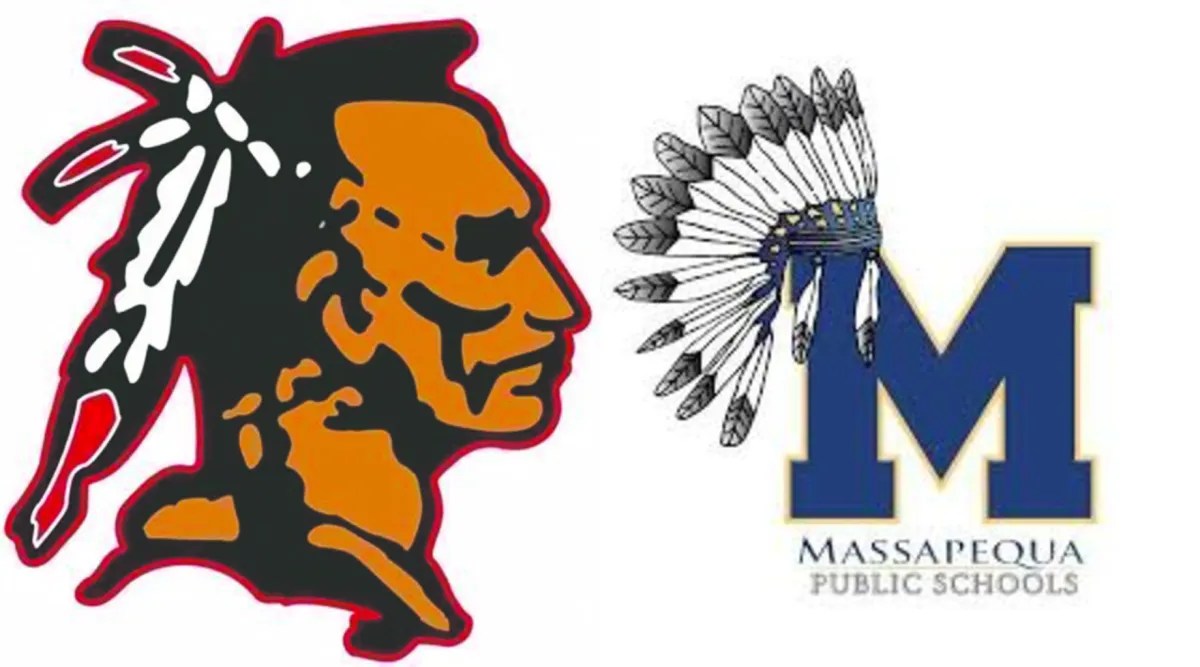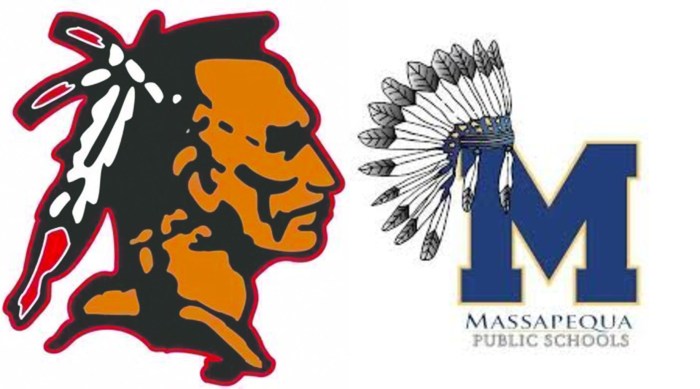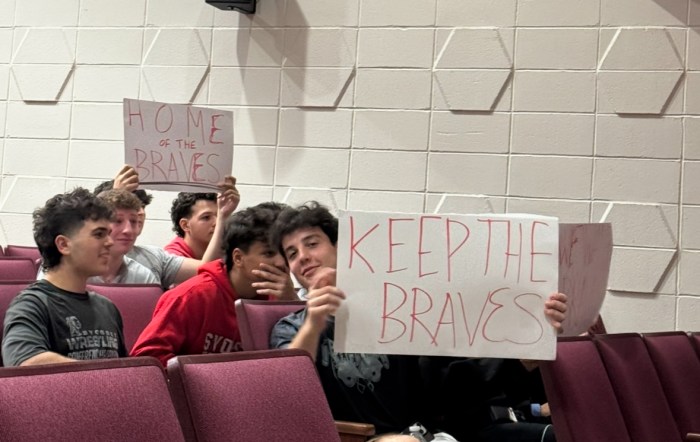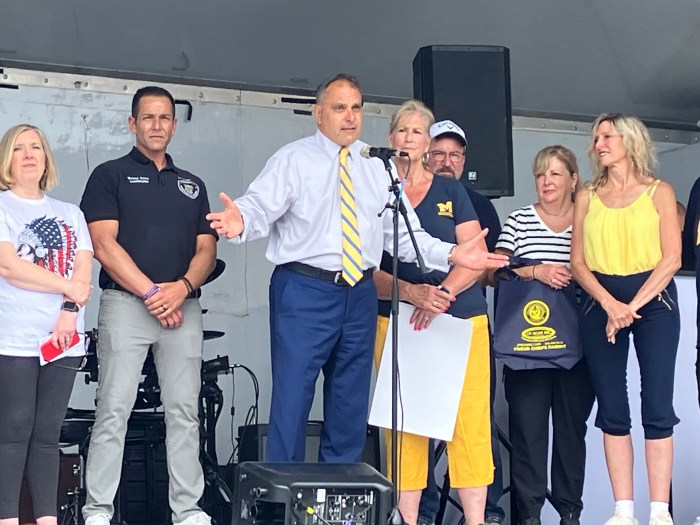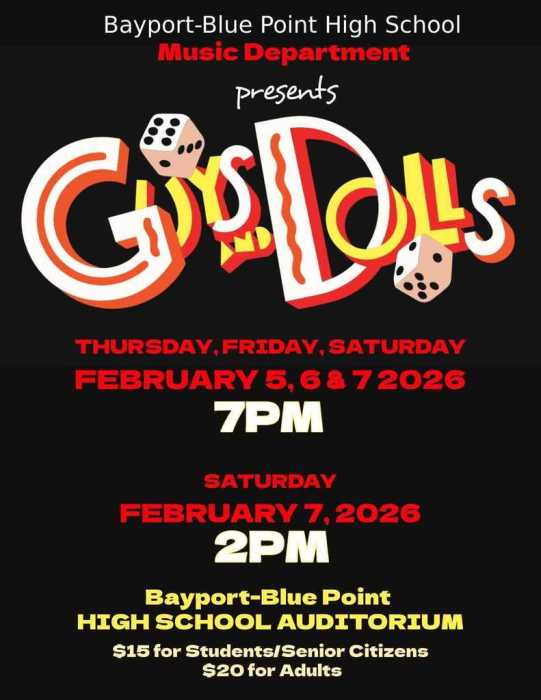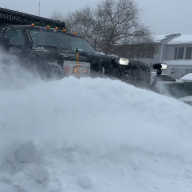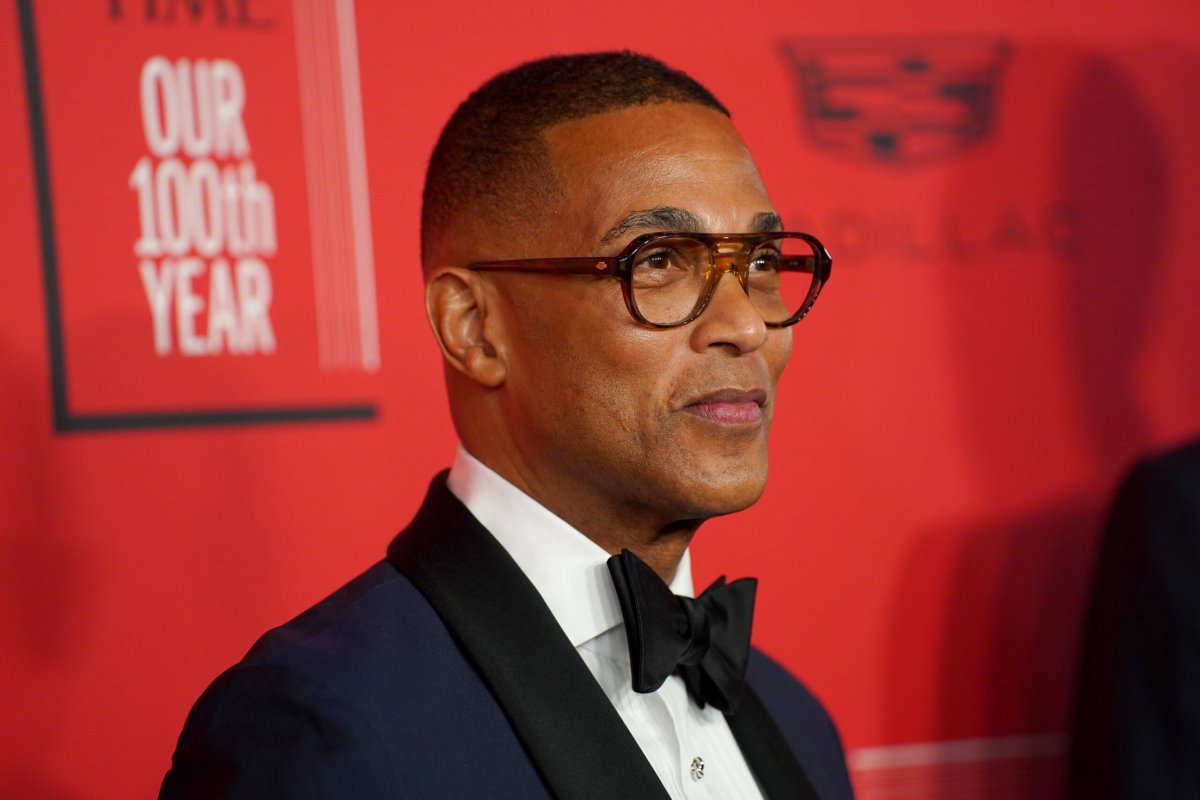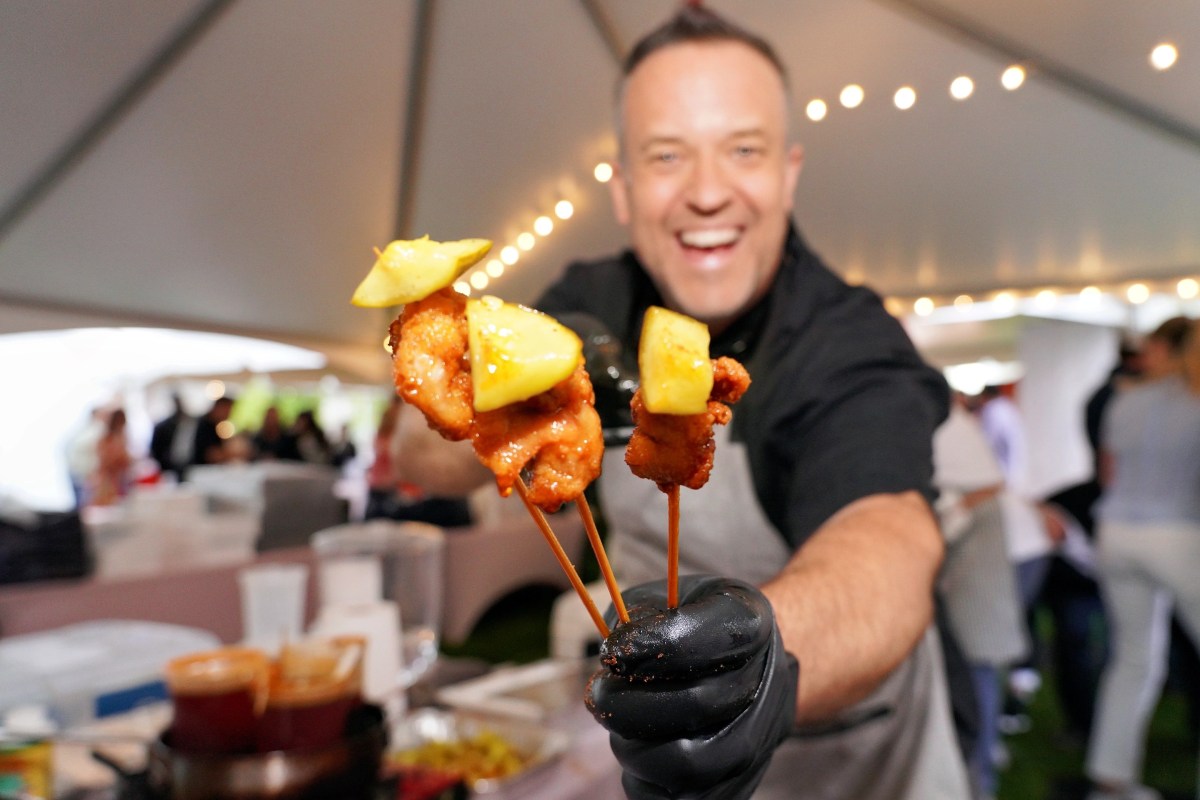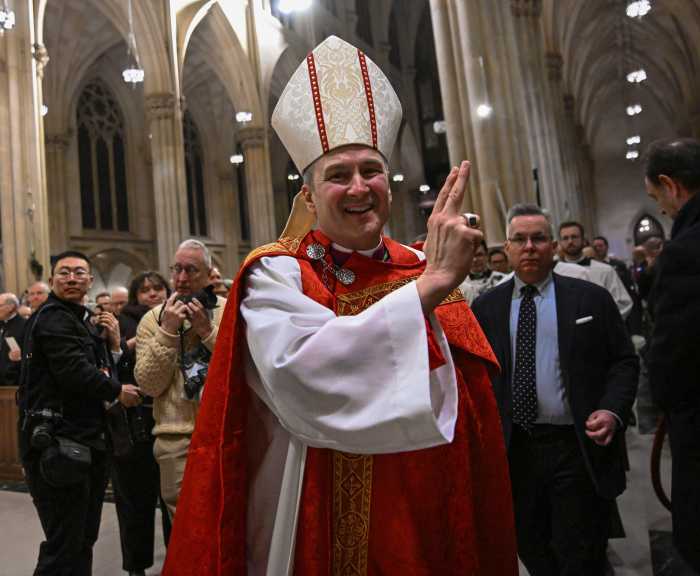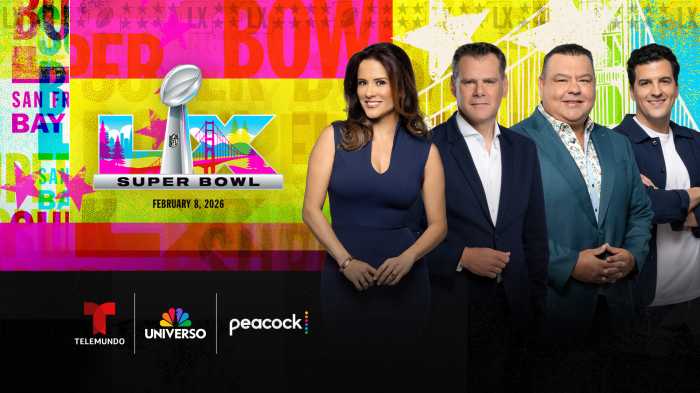U.S. Department of Education Secretary Linda McMahon claims New York “disrespected the people of Massapequa” when our state adopted a rule banning Native American “mascots” in public schools. But these so-called “mascots” are just mockeries of Indigenous people like me.
The Massapequa School District’s Chiefs nickname and logo doesn’t honor my culture, it insults it. As a proud Haudenosaunee woman from the Onondaga Nation I don’t see tradition in the logo – I see caricatures rooted in harmful stereotypes.
We are not the mockeries that these “mascots” represent. We are real people with real cultures that are still very much alive.
In her referral to the Justice Department, McMahon urged federal prosecutors to pull funding from New York State by twisting long-standing civil rights law. She claims New York’s ban on native “mascots” is an “unlawful attempt to ban mascots and logos that celebrate Native American history.” But as the State Education Department noted when explaining the ban, “These mascots are teaching stereotypical, misleading and too often, insulting images of American Indians.”
McMahon went a step further in July, launching a probe into Long Island’s Connetquot Central School District after it agreed to change its sports team to comply with New York’s logo ban. Under the Trump administration’s backwards logic, if a school system moves away from “mascots” that are mockeries of Native Americans, the district is discriminating against Indigenous people.
There are better ways to embrace, respect, and pay tribute to Indigenous cultures. Take the Onondaga Nation School (ONS) near Syracuse.
Architects redesigned the school with input from residents of the Onondaga Nation, resulting in a building that emphasizes the school’s cultural significance and honors the Haudenosaunee people. Instead of learning from examples like the Onondaga Nation School, McMahon’s referral to the Justice Department threatens to cut already scarce financial resources for schools that serve Indigenous students.
This would make a bad financial situation even worse. The beautiful redesign of ONS belies a structural problem in New York law that makes it difficult for schools on Indigenous land to make capital improvements.
The Onondaga Nation School and other Indigenous schools do not receive funding in the same way as other public schools. While nearly every school in New York State has a funding formula that guarantees money for capital improvements, Indigenous nation schools do not have the same guarantee. These schools must make a direct plea to the State Education Department for any building improvements or upkeep. This unique funding situation has caused the Onondaga Nation School to go years without any capital funding, leaving its plumbing, cooling, heating and overall infrastructure deteriorating.
Now, the Trump administration’s attempts to undermine New York’s Native American logo ban put Indigenous schools in even more financial peril. New York will need to pick up the tab if the federal government yanks its education funding, leaving fewer resources for capital improvements.
READ ALSO: Trump defends Massapequa School District’s use of Native American mascot
McMahon’s argument for pulling funds relies on a misinterpretation of Title VI, which prohibits discrimination based on race, color, or national origin in federally funded programs. Title VI was designed to protect marginalized communities from harm, not to protect expressions that cause harm to protected classes of people. Courts have repeatedly recognized that stereotypical depictions of Native Americans, even if intended as “honorific,” can cause real psychological and educational harm, especially to Indigenous students.
Perpetuating harmful stereotypes through school “mascots” does not pay tribute to our rich cultures. Instead, it distorts our history and fuels misinformation. Massapequa and the Trump administration should allow Indigenous students – and all New York children – to go to schools that are free from discrimination and that respect our living cultures and histories.




